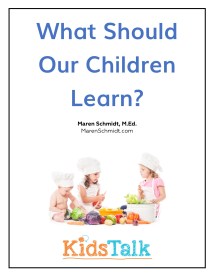
Information is an avalanche.
Technology experts tell us that every two days we now create as much information as we did from the dawn of civilization up until 2003.
To be able to dig ourselves out of this morass of words and images, in order to find our way and to live our lives, learning to ask questions becomes an essential skill.
First we have to ask big questions such as, “What is truly important to know?”
These answers will be as varied as there are people on this planet. All of the answers will be right for each and every person asking the questions and hunting for the answers. Maybe not the right answer for me. Maybe not for you.
What is vital is asking the questions.
And continuing to question. It is possible to build a life based on erroneous information, so we need to keep on questioning.
Daniel Pink in his book, DRiVE: The surprising truth about what motivates us, suggests that to help us find our purpose in life, we need to ask a big question: What’s my sentence?
Pink makes the point that our lives can be summed up in a sentence: He was a wonderful father who gave his children wings. She helped people regain their health. He helped everyone he met see his or her potential.
Once we know our sentence—for our life at this very moment–then we know what is important to know. Our questions become a search for vital and true information upon which we will build our lives.
Pink explains three qualities are necessary for us to tap into our potential as individuals.
- We need to have autonomy.
- We need to have a sense of purpose.
- We need to have a level of mastery of essential skills related to our purpose.
Autonomy means we have a choice of the activity in which we engage. The choice is based on internal motivation and not extrinsic rewards or punishments. When we can be curious and self-directed in the way we use our time, we create more powerful results than those obtained through stick and carrot methods. In short, autonomy means we have the freedom to question, to find those answers in our own way, and in our own time.
The by-product of asking the big questions and knowing our sentence is that we have a sense of purpose that guides our actions and provides a backdrop where we can consider plans and decisions.
Understanding our purpose creates a personal value system. As we make our independent choices for activities central to our purpose, we start on a lifetime path of mastery.
To keep us on-track, Pink offers a little question:
Was I better today than yesterday?
Learning to question begins with asking the big questions to understand our purpose in life, to understand our sentence. For once we understand our purpose, we focus on developing essential skills and core knowledge that relates to our big questions. Asking everyday if we have improved acts as a directional trim tab for reaching our objectives. Asking helps us maintain altitude and attitude.
To help children learn to question:
We have to allow them the freedom and time to ask and answer the big questions in their unique way.
We have to allow children to have important choices in their learning and living activities.
We have to give them the gift of deep time—time with people, time with tools, time with nature, time with ideas–to explore, make connections and develop mastery of essential skills and knowledge.
Most importantly, and the most difficult–we have to give ourselves as adult models of fearless questioning.
Sign up below for your free guide, What Should Our Children Learn?




One Response to “Learning to Question”